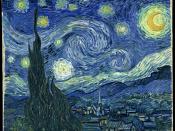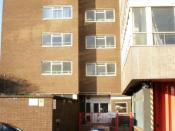Bipolar disorder, also known as manic-depressive illness, is a brain disorder that causes unusual shifts in a person's mood, energy, and ability to function. Different from the normal ups and downs that everyone goes through, the symptoms of bipolar disorder are severe. They can result in damaged relationships, poor job or school performance, and even suicide.
More than 2 million American adults, or about 1 percent of the population age 18 and older in any given year, have bipolar disorder. Bipolar disorder typically develops in late adolescence or early adulthood. However, some people have their first symptoms during childhood, and some develop them late in life. Bipolar disorder causes dramatic mood swings, from overly excited to sad and hopeless, and then back again, often with periods of normal mood in between. Severe changes in energy and behavior go along with these changes in mood. The periods of highs and lows are called episodes of mania and depression.
Some signs and symptoms of a "mania" are increased energy, activity, and restlessness, , Extreme irritability, Racing thoughts and talking very fast, jumping from one idea to another, easily distracted, can't concentrate well, little sleep needed, unrealistic beliefs in one's abilities and powers, poor judgment, spending sprees, increased sexual drive, abuse of drugs, aggressive behavior or denial that anything is wrong. A mild to moderate level of mania is called hypomania. Hypomania may feel good to the person who experiences it and may even be associated with good functioning and enhanced productivity Without proper treatment, however, hypomania can become severe mania in some people or can switch into depression. Sometimes, severe episodes of mania or depression include symptoms of psychosis or psychotic symptoms. Common psychotic symptoms are hallucinations (hearing, seeing, or sensing the presence of things not actually there, and delusions. People with...


